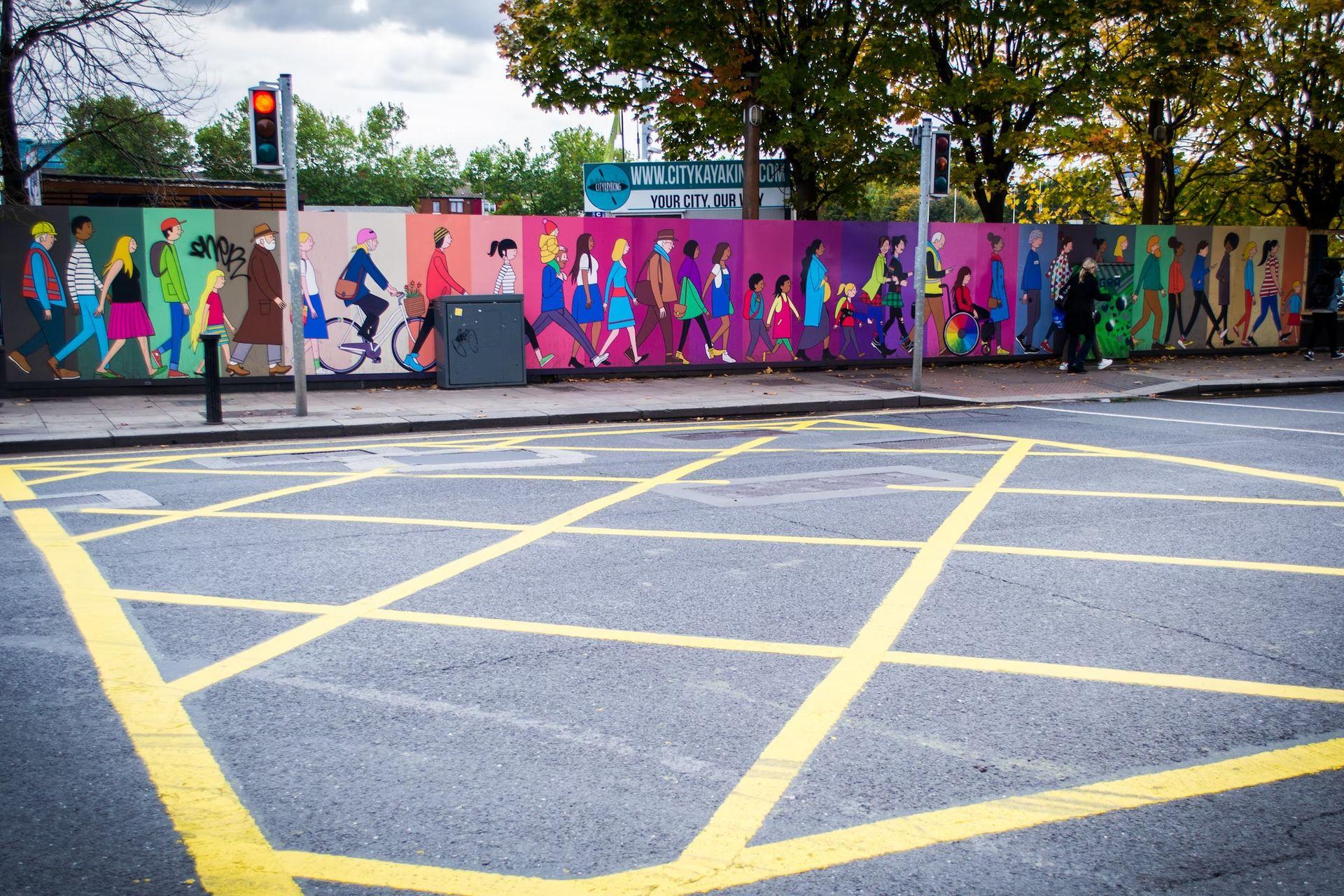It’s really important to discuss the benefits and drawbacks of artificial intelligence before it gets out of hand because this technology is improving and evolving at such a pace.
As a computer science field, AI focuses on developing software and machines that mimic human thinking. Some artificial intelligence systems can analyze large amounts of data to learn from the past and enhance their performance without the input of programmers.
AI is now widespread in both business and daily life. People interact with AI-powered virtual assistants or software daily to enhance their lives. AI is used by businesses to automate routine tasks and production procedures, forecast profits and losses and schedule necessary maintenance.
Benefits and drawbacks of artificial intelligence
AI advocates contend that technology can improve human capabilities and aid in the resolution of challenging issues. However, detractors fear that if AI develops to a level that surpasses our own, it may cause widespread unemployment and perhaps endanger humanity. Making decisions regarding the benefits and drawbacks of artificial intelligence is vital as we wrestle with the ramifications of this quickly developing technology.
Every technological breakthrough has its advantages and disadvantages. The benefits and drawbacks of artificial intelligence are heavily argued on many occasions. What does AI do beyond the hype- or fear-mongering headlines?
AI’s benefits include simplifying, saving time, removing biases, and automating tedious tasks. The drawbacks include things like expensive implementation, a potential loss of human jobs, and a lack of creativity and emotion.
Benefits of artificial intelligence
Everyone is aware that AI is offering companies some great advantages. According to the Appen State of AI Report for 2021, all firms must immediately include AI and ML in their models to avoid falling behind. Businesses are using AI more and more to streamline their internal procedures. Your company can reach its goals faster and more precisely by implementing AI.
So, where do we come out on top? Let’s discuss the benefits and drawbacks of artificial intelligence throughout this post.
Eliminating human error
The first significant advantage of using AI is that it reduces human error. Everyone occasionally makes mistakes. While mistakes are not necessarily terrible things, they can play a vital role in producing consistent outcomes. Artificial intelligence (AI) can avoid human error tainting an otherwise perfectly usable product or service by performing activities, especially repetitive ones.

Similarly, utilizing AI to finish extremely challenging or dangerous activities can help lower the risk of harm or injury to people. For instance, some robots are being utilized in radiation-rich environments, which is a great example of how AI can help reduce human health risks. Radiation can cause significant illness or death in humans, yet it does not affect robots. Additionally, the robot might be rebuilt if a catastrophic error occurred.
Always at hand
AI algorithms are always available, whereas people only work eight hours daily. Machines may work day and night, and chatbots powered by AI can offer customer assistance even after hours. As a result, businesses may be able to produce more and offer customers a better experience than they otherwise could.
Unbiased decisions
People frequently disagree and let their prejudices influence their decisions. Biases exist in all people, and despite our best efforts to address them, they occasionally manage to slip through the gaps.
How AI revamps financial services and banking experiences
On the other side, the AI algorithm can make decisions without prejudice if it has been trained with unbiased datasets and tested for programming bias. That could contribute to more equity in decisions regarding hiring, sanctioning loans, and granting credit.
However, if the AI was trained using biased datasets or test data, it may make biased conclusions that go undetected since people tend to believe that they are made impartially. Quality checks on the training data and the output of a particular AI software are crucial to ensure that bias issues aren’t missed.
Repetitive jobs
Even the most exciting job in the world involves some boring or repetitive tasks. This could involve performing operations like entering and analyzing data, producing reports, confirming data, and so on. Using an AI system, humans can avoid the monotony of repetitive work and save energy for activities that require more creative thinking.

Cost reduction
As we mentioned earlier, AI can work continuously, producing more value in a single day than a human worker. Additionally, as AI may assist in replacing manual and tiresome tasks, it frees up humans for more skilled jobs. This finally adds value for the consumer or end user.
Data analysis
When it comes to data processing, the volume of data produced far exceeds what humans can comprehend and analyze. Higher volumes of complicated data can be processed by AI algorithms, enabling data analysis.
Artificial intelligence: Benefits to society
AI can significantly increase the productivity of our workplaces, which can also help humans accomplish more work. The human workforce is freed to work on tasks they are better suited for, such as those needing creativity and empathy, as AI replaces boring or dangerous tasks. Happiness and job satisfaction may rise if people are engaged in more fulfilling employment.
Artificial intelligence has the potential to significantly change the healthcare industry with improved monitoring and diagnostic capabilities. AI can lower operating expenses and save money by enhancing the performance of medical organizations and healthcare facilities. According to a McKinsey estimate, big data might reduce medical and pharmaceutical costs by up to $100 billion yearly. The care of patients will have the biggest impact. Life-changing opportunities include the potential for customized treatment plans and pharmacological regimes and improved provider access to data from various medical facilities to help guide patient care.

With simply the introduction of autonomous mobility and AI affecting our traffic congestion concerns, not to mention the various ways it will increase on-the-job productivity, our society will gain countless hours of production. Humans will be able to spend their time in a number of various ways after they are freed from tense commutes.
AI will improve the way we find illegal behavior and solve crimes. As with fingerprints, facial recognition technology is gaining popularity. Applying AI in the legal system offers numerous opportunities to figure out how to use the technology successfully without invading someone’s privacy.
Artificial intelligence will greatly impact your life unless you decide to live away and never intend to engage with the modern world. Although there will be numerous obstacles to overcome when the technology is used in new applications, it is anticipated that artificial intelligence will generally have a more positive than the bad impact on society.
Drawbacks of artificial intelligence
With all the benefits mentioned above, implementing AI for your company right away might not be the best option after all. But it’s also wise to carefully weigh any potential drawbacks of such a radical move. Adopting AI has many advantages, but there are also drawbacks, such as installation expenses and deterioration with time.
High costs
The biggest and most evident drawback of using AI is its high development expense. The price varies depending on what precisely you need AI to achieve. According to one estimate, the price for most organizations to completely adopt an AI system ranges from $20,000 to far into the millions of dollars.
Once AI is fully installed and can help to improve the workflow, the cost is eventually offset. However, the initial expense may be frightening, if not outright prohibitive.
Lack of creativity
The inability of AI to make decisions using emotion and creativity is its next drawback.
AI cannot invent unique solutions to problems or flourish in any highly artistic profession due to its lack of creativity. AI may be programmed to produce “novel” thoughts but not truly original ones at this time in its development. This study claims that until AI can produce novel and unexpected ideas, it won’t be as creative as humans, which will limit its ability to make decisions. Humans are more equipped to offer a solution if a business seeks a unique or imaginative solution to a problem.

Humans naturally take the emotional implications into account while making sensitive judgments. AI lacks the capability; regardless of the decision’s emotional resonance, it will only ever choose the best given the circumstances. Even artificial intelligence that has been taught to read and comprehend human emotion falls short.
Midjourney AI: Poets are becoming painters with artificial intelligence
In this study, the AI more frequently associated people of non-white races with unpleasant feelings. This would imply that decisions made by an AI using this data would be racially prejudiced and contribute to increasing inequity.
Kindness and compassion are both essentially human qualities that even the most advanced AI cannot be designed to exhibit.
Degradation
This drawback might not be as clear as the ones mentioned above. But over time, most machines deteriorate. For instance, if AI is added to a piece of machinery on an assembly line, the machine’s components will eventually begin to wear out. In addition, the AI will eventually malfunction if it lacks a self-repairing feature.
The AI itself may also become outdated if it is not taught to learn and is not frequently reviewed by data scientists. If the AI isn’t retrained or given the ability to learn and advance on its own, the model and training data used to generate it will eventually be out of date.
Experience and mistakes
AI cannot naturally learn from its own experience and mistakes, similar to the above claim. By nature, people attempt to avoid making the same mistakes again and again. However, developing an AI that can learn independently is expensive and highly complex. Of course, some AIs have the ability to learn. The Google software AlphaGo, which trained itself to play the board game of Go and began devising unique strategies within three days, is perhaps the most renowned example of this.
However, without the programming to learn on its own, AI will require human assistance to grow gradually.
Layoffs
Due to several headlines throughout the years, this is yet another drawback that many people are immediately aware of. Since AI can readily do monotonous tasks that employees previously performed, it may result in fewer open positions if AI grows more prevalent in businesses.
Currently, several reports indicate that AI will probably create as many new employees as it eliminates, if not more. However, you then get the issue of needing to train people for these new roles or risk lagging behind with the rapid advancement of technology.

Ethical concerns
Numerous ethical concerns about AI’s use and future development have emerged as a result of the technology’s quick development and application. Concerns about consumer data privacy are among the most frequently mentioned ethical issues. The durability of data creates numerous challenges to the informed consent of the people who own the data. Also, AI can collect data on people without direct access to their personal information because it is brilliant at spotting trends. So, given the rapid advancement of AI, the question is: how can we preserve customer privacy?
AI can make robots racist and sexist
Conclusion
AI has massive potential to create a better place to live in. Making sure AI isn’t utilized excessively is crucial for the future of humanity. That is why understanding the benefits and drawbacks of artificial intelligence will be a key point to consider for developers and companies. AI has already provided big and small benefits in its few decades of existence, and as computer science advances, you can expect exciting new innovations and discoveries.
These complex machines have made business more efficient and everyday life a bit more convenient. From Alexa to big data warehousing to industry-leading speech recognition technology, AI applications will likely only improve with time.
Of course, it’s not all sunshine, rainbows, or daisies. AI technology also presents some disadvantages that scientists and experts must consider as they develop new applications.






